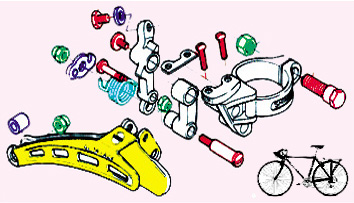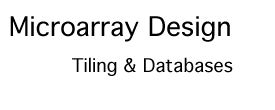More tools: Difference between revisions
No edit summary |
No edit summary |
||
| (39 intermediate revisions by the same user not shown) | |||
| Line 1: | Line 1: | ||
Below is a list of tools that have previously been developed and published by the Gerstein Lab. | |||
To view tools that have been published and are '''actively being maintained''', please click [http://info.gersteinlab.org/Resources here]. | |||
'''Unpublished resources''' may be viewed by clicking [http://info.gersteinlab.org/Even_more_tools here]. | |||
Literature associated with lab software and servers may be accessed [http://papers.gersteinlab.org/subject/resources/index.html here]. | |||
=Tools portals= | |||
===Genecensus=== | ===Genecensus=== | ||
:{|class="wikitable sortable" border="1" cellspacing="0" cellpadding="10" | :{|class="wikitable sortable" border="1" cellspacing="0" cellpadding="10" | ||
| Line 5: | Line 13: | ||
!Tool Name!!Release Date!!class="unsortable"|Description | !Tool Name!!Release Date!!class="unsortable"|Description | ||
|-style="height: 100px;" | |-style="height: 100px;" | ||
|style="width:15%; text-align:center;"| [[File:Genecensus-title.jpg]] <br> [http://www.genecensus.org/tree/index.cgi?view=1&type=comp-dint-per Genecensus]||style="width:7%; text-align:center;"| | |style="width:15%; text-align:center;"| [[File:Genecensus-title.jpg]] <br> [http://www.genecensus.org/tree/index.cgi?view=1&type=comp-dint-per Genecensus]||style="width:7%; text-align:center;"|1998|| | ||
we proposed a number of novel trees based on the occurrence of specific features, either folds or orthologs, throughout the whole genome. We call thesegenomic trees or whole-genome trees. | we proposed a number of novel trees based on the occurrence of specific features, either folds or orthologs, throughout the whole genome. We call thesegenomic trees or whole-genome trees. | ||
|} | |} | ||
| Line 14: | Line 22: | ||
!Tool Name!!Release Date!!class="unsortable"|Description | !Tool Name!!Release Date!!class="unsortable"|Description | ||
|-style="height: 100px;" | |-style="height: 100px;" | ||
|style="width:15%; text-align:center;"| [[File:Parts-bi-parts-5.jpg|center|x85px]] <br> [http://partslist.org/ partslist]||style="width:7%; text-align:center;"|1995 | |style="width:15%; text-align:center;"| [[File:Parts-bi-parts-5.jpg|center|x85px]] <br> [http://partslist.org/ partslist]||style="width:7%; text-align:center;"|1995|| | ||
a web-based system for dynamically ranking protein folds based on disparate attributes, including whole-genome expression and interaction information | a web-based system for dynamically ranking protein folds based on disparate attributes, including whole-genome expression and interaction information | ||
|} | |} | ||
| Line 23: | Line 31: | ||
!Tool Name!!Release Date!!class="unsortable"|Description | !Tool Name!!Release Date!!class="unsortable"|Description | ||
|-style="height: 100px;" | |-style="height: 100px;" | ||
|style="width:15%; text-align:center;"| [[File:Headline.gif]] <br> [http://genometech.gersteinlab.org/ genometech]||style="width:7%; text-align:center;"|1995 | |style="width:15%; text-align:center;"| [[File:Headline.gif]] <br> [http://genometech.gersteinlab.org/ genometech]||style="width:7%; text-align:center;"|1995|| | ||
A central problem for 21st century science is annotating the human genome and making this annotation useful for the interpretation of personal genomes. | A central problem for 21st century science is annotating the human genome and making this annotation useful for the interpretation of personal genomes. | ||
|} | |} | ||
= | =Network Tools= | ||
:{|class="wikitable sortable" border="1" cellspacing="0" cellpadding="10" | :{|class="wikitable sortable" border="1" cellspacing="0" cellpadding="10" | ||
|- bgcolor="lightsteelblue" | |- bgcolor="lightsteelblue" | ||
!Tool Name!!Release Date!!class="unsortable"|Description | !Tool Name!!Release Date!!class="unsortable"|Description | ||
|-style="height: 100px;" | |-style="height: 100px;" | ||
|style="width:15%; text-align:center;"| [ | |style="width:15%; text-align:center;"|[http://hub.gersteinlab.org/ir-supp/ '''HUB''']||style="width:7%; text-align:center;"|2001||A tool for leveraging the structure of the semantic web to enhance information retrieval for proteomics. This tool helps Proteomics researchers to be able to quickly retrieve relevant information from the web and the biomedical literature. | ||
|-style="height: 100px;" | |||
|style="width:15%; text-align:center;"|[http://yeasthub.gersteinlab.org '''Yeasthub''']||style="width:7%; text-align:center;"|1997||A semantic web-based application which demonstrates how a life sciences data warehouse can be built using a native Resource Description Framework (RDF) data store. This data warehouse allows integration of different types of yeast genome data provided by different resources in different formats including the tabular and RDF formats. | |||
|} | |} | ||
= | =Arrays-Based Tools= | ||
:{|class="wikitable sortable" border="1" cellspacing="0" cellpadding="10" | :{|class="wikitable sortable" border="1" cellspacing="0" cellpadding="10" | ||
|- bgcolor="lightsteelblue" | |- bgcolor="lightsteelblue" | ||
!Tool Name!!Release Date!!class="unsortable"|Description | !Tool Name!!Release Date!!class="unsortable"|Description | ||
|-style="height: 100px;" | |-style="height: 100px;" | ||
|style="width:15%; text-align:center;"| [ | |style="width:15%; text-align:center;"|[http://purelight.biology.yale.edu:8080/servlets-examples/procat.html '''ProCAT ''']||style="text-align:center;"|2006||A data analysis approach for protein microarrays. ProCAT corrects for background bias and spatial artifacts, identifies significant signals, filters nonspecific spots, and normalizes the resulting signal to protein abundance. ProCAT provides a powerful and flexible new approach for analyzing many types of protein microarrays. | ||
|-style="height: 100px;" | |||
|style="width:15%; text-align:center;"|[http://tilescope.gersteinlab.org/ '''Tilescope''']||style="text-align:center;"|2007||An online analysis pipeline for high-density tiling microarray data. Tilescope normalizes signals between channels and across arrays, combines replicate experiments, score each array element, and identifies genomic features. The program is designed with a modular, three-tiered architecture, facilitating parallelism, and a graphic user-friendly interface, presenting results in an organized web page, downloadable for further analysis. | |||
|} | |} | ||
===Clustering=== | |||
:{|class="wikitable sortable" border="1" cellspacing="0" cellpadding="10" | |||
|- bgcolor="lightsteelblue" | |||
!Tool Name!!Release Date!!class="unsortable"|Description | |||
|-style="height: 100px;" | |||
|style="width:15%; text-align:center;"|[http://bioinfo.mbb.yale.edu/expression/cluster '''Local Clustering''']||style="width:7%; text-align:center;"|2001||A new algorithm for local clustering to find timeshifted and/or inverted relationships in gene expression data is available as C source code. | |||
|} | |||
=Other= | |||
:{|class="wikitable sortable" border="1" cellspacing="0" cellpadding="10" | |||
|- bgcolor="lightsteelblue" | |||
!Tool Name!!Release Date!!class="unsortable"|Description | |||
|-style="height: 100px;" | |||
|style="width:15%; text-align:center;"|[http://www.gersteinlab.org/proj/BoCaTFBS/ '''BoCaTFBS''']||style="width:7%; text-align:center;"|2006||A boosted cascade learner to refine the binding sites suggested by ChIP-chip experiments. This tool is based on a data mining approach combining noisy data from ChIP-chip experiments with known binding site patterns. BoCaTFBS uses boosted cascades of classifiers for optimum efficiency, in which components are alternating decision trees; it exploits interpositional correlations; and it explicitly integrates massive negative information from ChIP-chip experiments. | |||
|-style="height: 100px;" | |||
|style="width:15%; text-align:center;"|[http://bioinfo.mbb.yale.edu/ExpressYourself '''ExpressYourself''']||style="width:7%; text-align:center;"|2003||An interactive platform for background correction, normalization, scoring, and quality assessment of raw microarray data. | |||
|-style="height: 100px;" | |||
|style="width:15%; text-align:center;"|[http://spine.nesg.org '''SPINE''']||style="width:7%; text-align:center;"|2001||A laboratory-information management system (LIMS) for the [http://www.nesg.org NorthEast Structural Genomics Consortium]. The online version is restricted to consortium users, but most of the code is freely available for download. | |||
|} | |||
[[even more tools]] | [[even more tools]] | ||
Latest revision as of 02:16, 19 May 2016
Below is a list of tools that have previously been developed and published by the Gerstein Lab.
To view tools that have been published and are actively being maintained, please click here.
Unpublished resources may be viewed by clicking here.
Literature associated with lab software and servers may be accessed here.
Tools portals
Genecensus
Tool Name Release Date Description 
Genecensus1998 we proposed a number of novel trees based on the occurrence of specific features, either folds or orthologs, throughout the whole genome. We call thesegenomic trees or whole-genome trees.
partslist.org
Tool Name Release Date Description 
x85px
partslist1995 a web-based system for dynamically ranking protein folds based on disparate attributes, including whole-genome expression and interaction information
genometech
Tool Name Release Date Description 
genometech1995 A central problem for 21st century science is annotating the human genome and making this annotation useful for the interpretation of personal genomes.
Network Tools
Tool Name Release Date Description HUB 2001 A tool for leveraging the structure of the semantic web to enhance information retrieval for proteomics. This tool helps Proteomics researchers to be able to quickly retrieve relevant information from the web and the biomedical literature. Yeasthub 1997 A semantic web-based application which demonstrates how a life sciences data warehouse can be built using a native Resource Description Framework (RDF) data store. This data warehouse allows integration of different types of yeast genome data provided by different resources in different formats including the tabular and RDF formats.
Arrays-Based Tools
Tool Name Release Date Description ProCAT 2006 A data analysis approach for protein microarrays. ProCAT corrects for background bias and spatial artifacts, identifies significant signals, filters nonspecific spots, and normalizes the resulting signal to protein abundance. ProCAT provides a powerful and flexible new approach for analyzing many types of protein microarrays. Tilescope 2007 An online analysis pipeline for high-density tiling microarray data. Tilescope normalizes signals between channels and across arrays, combines replicate experiments, score each array element, and identifies genomic features. The program is designed with a modular, three-tiered architecture, facilitating parallelism, and a graphic user-friendly interface, presenting results in an organized web page, downloadable for further analysis.
Clustering
Tool Name Release Date Description Local Clustering 2001 A new algorithm for local clustering to find timeshifted and/or inverted relationships in gene expression data is available as C source code.
Other
Tool Name Release Date Description BoCaTFBS 2006 A boosted cascade learner to refine the binding sites suggested by ChIP-chip experiments. This tool is based on a data mining approach combining noisy data from ChIP-chip experiments with known binding site patterns. BoCaTFBS uses boosted cascades of classifiers for optimum efficiency, in which components are alternating decision trees; it exploits interpositional correlations; and it explicitly integrates massive negative information from ChIP-chip experiments. ExpressYourself 2003 An interactive platform for background correction, normalization, scoring, and quality assessment of raw microarray data. SPINE 2001 A laboratory-information management system (LIMS) for the NorthEast Structural Genomics Consortium. The online version is restricted to consortium users, but most of the code is freely available for download.